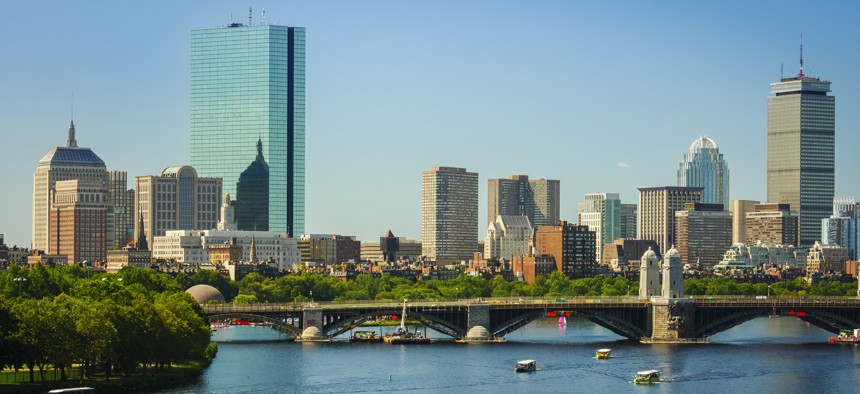Few Cities Are Meeting Greenhouse Gas Reduction Targets, Report Says

Boston, Massachusetts Shutterstock/Marcio Jose Bastos Silva

Connecting state and local government leaders
The City Clean Energy Scorecard looks at 75 cities across the country.
Boston has retained its top spot in a ranking of cities based on the policies they have in place to improve energy efficiency and expand renewable energy.
Even among the cities that scored best in the rankings, however, there’s room for improvement, according to the authors of the report. They found that of the 75 U.S. cities included in the rankings fewer than a dozen are on track to meet city-wide greenhouse gas reduction targets.
The nonprofit American Council for an Energy-Efficient Economy released the report. It’s the fourth edition of the group’s City Clean Energy Scorecard.
Rounding out the second through the 10th spot in the rankings are: San Francisco, Seattle, Minneapolis, Washington, New York, Los Angeles, Denver, Austin, Texas and Portland, Oregon.
Cities that received the worst scores included: Henderson, Nevada; Birmingham, Alabama; McAllen, Texas; Tulsa, Oklahoma and Oklahoma City.
Information used for the report is based on policies through April 1 of this year.
Of the 49 cities in the rankings with greenhouse gas reduction targets in place, only 27 had data fully tracking their progress. Eight of those places are slated to miss their goals, another eight are expected to make progress but still fall short, and 11 are projected to meet their targets.
Buildings are one key area where cities have made progress on the clean energy front, according to the report. They’ve done so by adopting or advocating for stricter building energy codes and other local ordinances, requirements and standards.
Finding ways to further reduce emissions in the transportation sector, and focusing on clean energy investments and initiatives in poor and minority communities, are two of the areas where ACEEE says cities could ramp up their efforts.
The group assesses cities based on five areas: government operations, community-wide initiatives, buildings policies, energy and water utilities and transportation policies.
Between January 2017 and April 2019, local governments across all of the ranked cities collectively took more than 265 actions to make clean energy improvements, the report says.
Boston scored well because of policies like a stringent building energy code, benchmarking and other requirements in place under a building energy reporting and disclosure ordinance, and investments by local utilities in electricity and natural gas efficiency programs.
The report offers some suggestions for how cities in each tier of the rankings can improve.
For instance, for places at the bottom of the rankings, it recommends adopting policies and programs to save energy in government buildings and vehicle fleets, as well as partnering with utilities on initiatives like energy savings plans and expanding the use of renewable energy sources.
A full copy of the report can be found here.
Bill Lucia is a Senior Reporter at Route Fifty and is based in Olympia, Washington.

NEXT STORY: The Brain-Eating Amoeba Is a Nearly Perfect Killer





